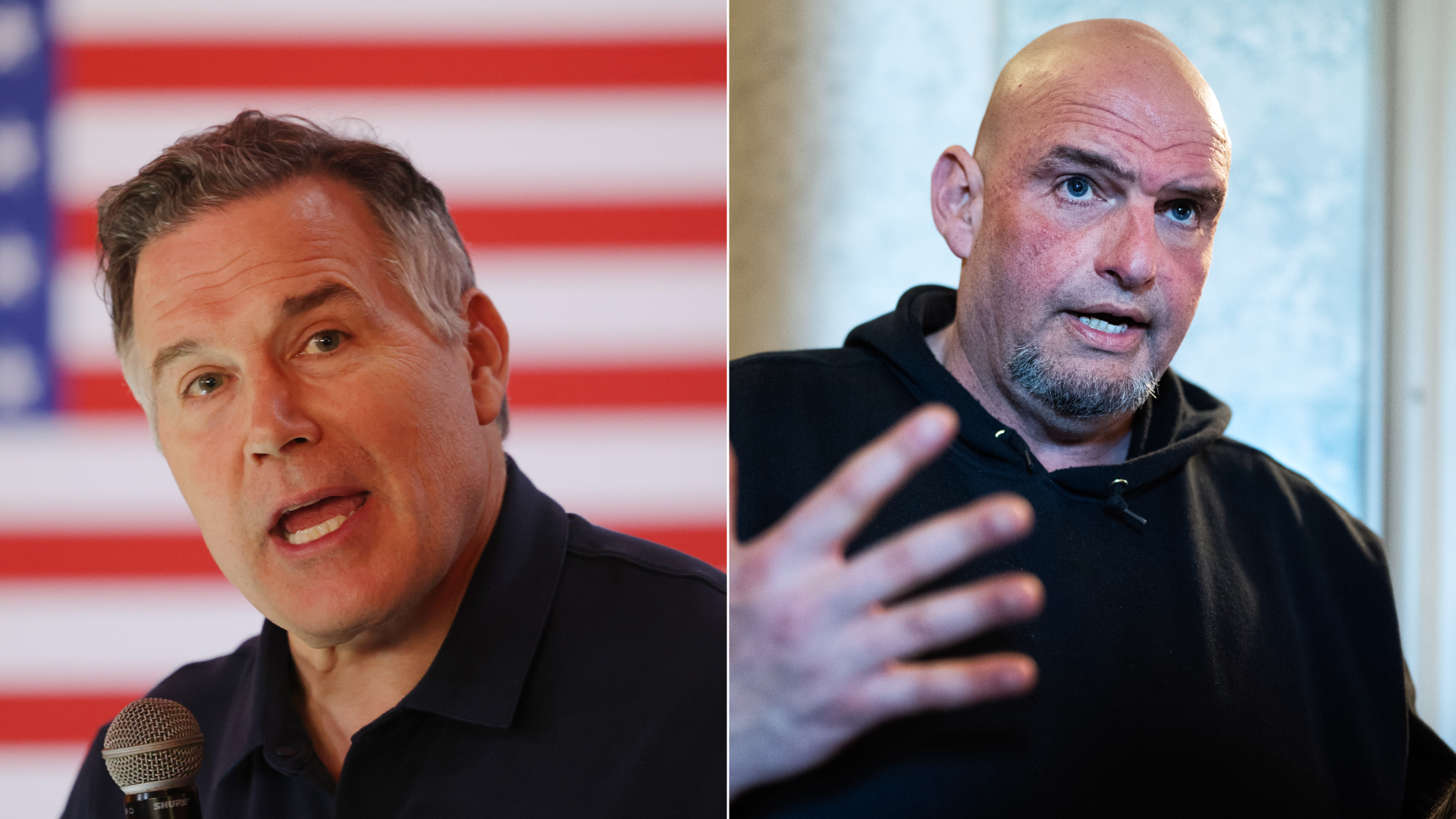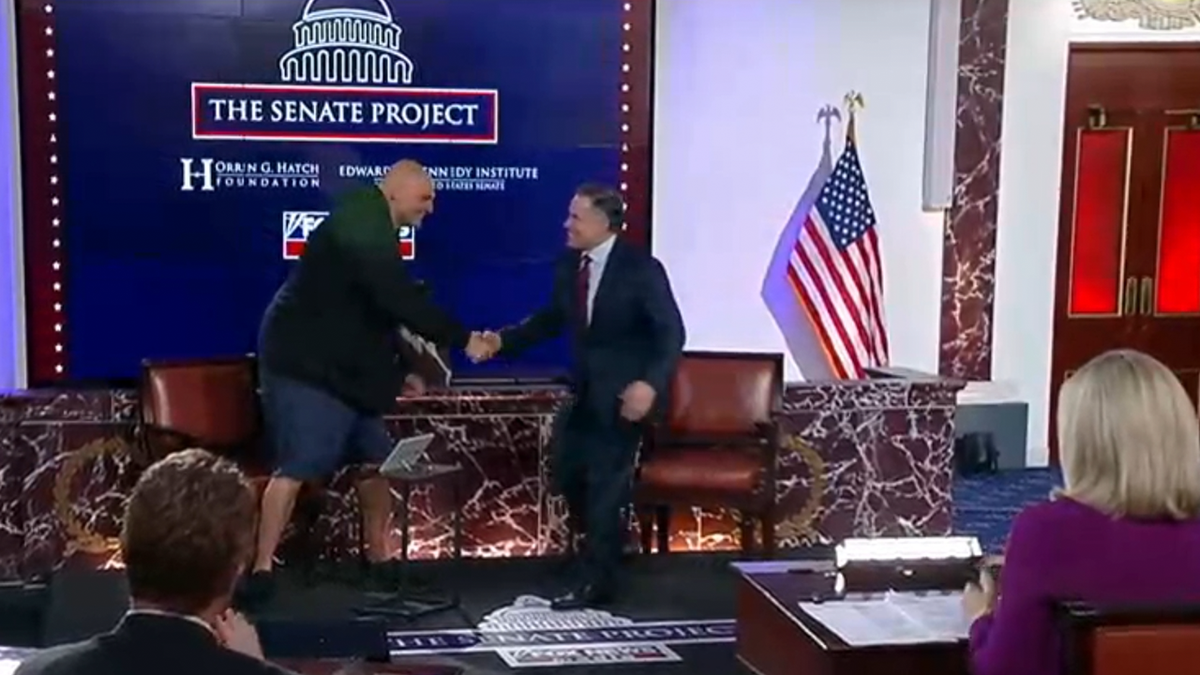
In an era marked by political polarization and gridlock, two unlikely allies in the U.S. Senate are offering a rare example of bipartisanship. Pennsylvania Senators Dave McCormick (Republican) and John Fetterman (Democrat) have recently come together in an effort to address one of the most pressing issues in the nation: the ongoing government shutdown.
This collaboration, which is a welcome sight for many Americans frustrated with Washington's inability to govern, has been praised as a step toward bridging the divide between the two parties in an era of intense partisan animosity.
The shutdown, now in its 23rd day, has already begun to take a significant toll on everyday Americans, especially those who rely on government services for their livelihoods.
McCormick and Fetterman’s joint efforts aim to draw attention to the impact of the shutdown and pressure lawmakers on both sides of the aisle to find a solution.
Their collaboration, captured in a video that has gained attention across the country, is a powerful example of what can happen when political leaders put aside partisan differences and work together for the common good.
In a video shared by both senators, Fetterman and McCormick stand side by side, emphasizing the urgency of reopening the government. Despite their political differences, the two senators agree on one fundamental point: the shutdown is harming their constituents.
Fetterman, in his characteristic straightforward manner, states, “Even though we are in a different party, we both want to talk about why we believe it’s so important to reopen this government.”
McCormick, who represents the Republican Party in the Senate, echoes this sentiment, adding, “23 days, 12 votes, Senator Fetterman and I have both voted to open up the government. We agree on that 100%. It’s really starting to hurt Pennsylvania.”

This rare show of unity is particularly noteworthy in today’s political climate, where cooperation between Republicans and Democrats seems increasingly difficult to come by.
Both senators recognize that the shutdown is having a direct and detrimental effect on the people they represent. From air traffic controllers and border patrol agents working without pay to the millions of Americans who rely on food assistance programs like SNAP (Supplemental Nutrition Assistance Program), the consequences of the shutdown are becoming more dire with each passing day.
One of the most urgent concerns for both McCormick and Fetterman is the impact of the shutdown on federal workers and essential services. As the shutdown stretches on, more than 750,000 federal employees have been furloughed, while other essential workers, such as air traffic controllers and border patrol agents, are required to continue working without pay.
These individuals are critical to the country’s safety and functionality, yet they are being left in financial uncertainty due to political gridlock in Washington.
In Pennsylvania, this reality is being felt particularly acutely. McCormick points to the struggles of workers who are vital to keeping the country safe and ensuring the smooth functioning of essential services.
“The air traffic controllers and border patrol agents who are working to secure the border and keep the country safe, they’re feeling the strain,” McCormick says in the video.
The prolonged shutdown is not only impacting these workers’ financial stability but also threatening the safety and security of the nation’s infrastructure.
Another group severely affected by the shutdown is those relying on SNAP benefits. For millions of low-income families, the shutdown means the potential loss of food assistance just as winter sets in.

According to reports from the U.S. Department of Agriculture, the funds allocated for SNAP may run out as early as November if the shutdown continues, leaving millions of families facing food insecurity during one of the most critical times of the year.
Fetterman, who has long championed progressive causes such as universal healthcare and support for the working class, has been vocal about his opposition to the shutdown.
He has repeatedly said that he will not stand by and allow the shutdown to continue if it means that his constituents will suffer. “I refuse to vote to suspend SNAP for millions of Pennsylvanians in my state and across the entire nation,” Fetterman insisted.
His willingness to speak out against the shutdown, despite the potential political fallout, reflects his deep commitment to his constituents and their well-being.
The collaboration between McCormick and Fetterman, two politicians who represent very different ideological camps, is a sign that bipartisan cooperation may still be possible even in today’s deeply polarized political environment.
The two senators have repeatedly voted in favor of measures that would reopen the government and restore funding to critical services, such as military pay and food assistance programs.
Unfortunately, despite their efforts, their proposals have failed to gain traction in the Senate. On several occasions, Republicans and Democrats have voted down short-term funding bills, unable to come to an agreement over the details of the budget.
The primary sticking point remains the issue of government spending and the policies attached to the funding packages.

For Democrats, one of the main sticking points is the extension of tax breaks for 24 million Americans who buy insurance through the Affordable Care Act (ACA).
Democrats have insisted that the government funding bill include a provision to make these tax breaks permanent, as they are set to expire at the end of the year.
Senate Democrats argue that without this extension, millions of Americans will lose access to affordable healthcare, exacerbating the already dire situation facing low-income families.
For Republicans, the issue of healthcare for undocumented immigrants remains a major obstacle to passing a spending bill. President Donald Trump has made it clear that he will not agree to any funding package that includes provisions for providing healthcare to illegal immigrants.
This issue has created significant divisions between the two parties, making it difficult to find a solution that both sides can agree on.
While the path to reopening the government remains unclear, McCormick and Fetterman’s collaboration has provided a glimmer of hope for those who believe that bipartisanship is still possible.
The two senators have demonstrated that, even in a deeply divided political environment, it is possible for elected officials to put the needs of their constituents above party lines and work together for the common good.
This bipartisan effort could serve as a model for other lawmakers in Washington, particularly as the country faces numerous challenges, from economic inequality to climate change.

If more politicians from both parties can set aside their differences and focus on the issues that matter most to their constituents, it could lead to a more cooperative and productive government.
Fetterman and McCormick’s joint efforts have also garnered attention from their respective parties. Conservatives have praised McCormick for his willingness to work across the aisle, while some progressive Democrats have commended Fetterman for putting the interests of his constituents ahead of party loyalty.
This cross-party support shows that there is still a significant segment of the population that values pragmatic governance over ideological purity.
Despite the optimism surrounding their collaboration, the road to reopening the government is still fraught with challenges. As the shutdown continues, the pressure on both parties to reach a compromise grows.
The longer the shutdown persists, the more damage it will do to the country’s economy, infrastructure, and social programs. Federal employees are facing increasing uncertainty, and essential services are at risk of being permanently disrupted.
The key to resolving the shutdown will likely lie in finding common ground on critical issues like healthcare, border security, and government spending.
However, with both parties dug in on their respective positions, it remains unclear how the impasse will be broken. McCormick and Fetterman’s efforts to bypass the partisan gridlock and appeal to common-sense Democrats may be a necessary step in moving forward, but it will require cooperation from both sides to reach a lasting solution.
As both senators continue to push for an end to the shutdown, they are also demonstrating the power of bipartisanship in a time of intense political division.

While the challenges are great, their collaboration offers a glimmer of hope for those who believe that politics should be about solving problems, not scoring political points.
The partnership between Senators McCormick and Fetterman is a rare but welcome example of bipartisanship in today’s political climate. Their efforts to reopen the government highlight the importance of working together for the benefit of the American people, even when ideological differences seem insurmountable.
As the shutdown continues and the pressure on lawmakers intensifies, McCormick and Fetterman’s willingness to work across the aisle should serve as a model for others in Washington.
If more politicians prioritize the needs of their constituents and set aside party divisions, the government may be able to overcome its current dysfunction and move forward with policies that benefit all Americans.

-1749801355-q80.webp)
-1750551202-q80.webp)
